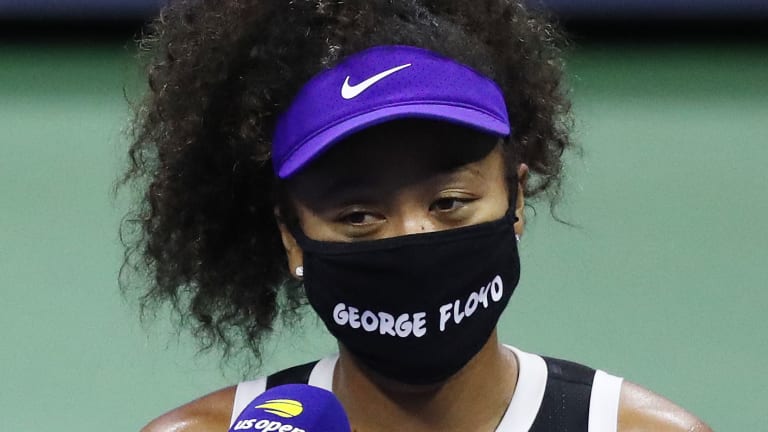US Open
Naomi Osaka is playing with greater purpose, and a game that's growing
By Sep 09, 2020US Open
Eric Butorac will replace Stacey Allaster as US Open tournament director
By Nov 17, 2025US Open
Beyond The Champions: 2025 US Open Winners and Losers
By Sep 10, 2025US Open
In US Open defeat, Jannik Sinner faces his shortcomings
By Sep 09, 2025US Open
Amanda Anisimova's US Open fortnight wasn't just "incredible"—it was redemptive
By Sep 09, 2025US Open
Overcoming Doubt, Finding Deliverance: Six WTA takeaways from the 2025 US Open
By Sep 08, 2025US Open
Service and a smile: How Carlos Alcaraz conquered Jannik Sinner at the 2025 US Open
By Sep 08, 2025US Open
Carlos Alcaraz captures sixth Slam and second US Open title, dethrones No. 1 Jannik Sinner
By Sep 07, 2025US Open
Alcaraz vs. Sinner US Open final start delayed by 30 minutes
By Sep 07, 2025US Open
Blinding Lights: Amanda Anisimova rues missed opportunities, serve woes after US Open final
By Sep 07, 2025Naomi Osaka is playing with greater purpose, and a game that's growing
The powerful athlete and quiet activist scored a 79-minute quarterfinal win over Shelby Rogers.
Published Sep 09, 2020
Advertising

Naomi Osaka is playing with greater purpose, and a game that's growing
© Getty Images